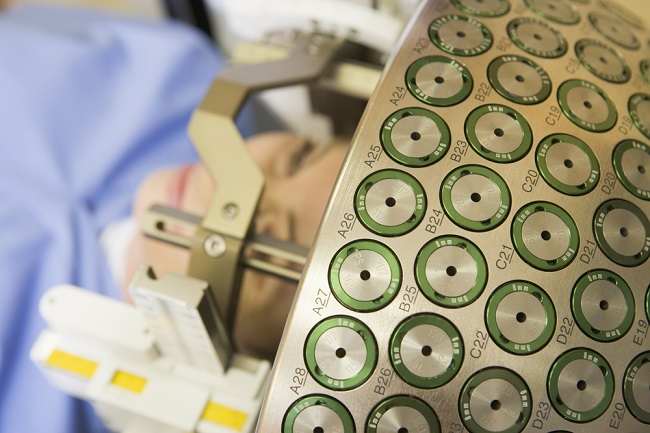Nevirapine is a drug used in the treatment of infectionhuman immunodeficiency virus (HIV). This drug cannot cure HIV, but can slow down development HIV infection.
Nevirapine works by reducing the amount of HIV virus, so the immune system can work better. Thus, the risk of developing a number of complications from HIV/AIDS, such as severe infection, Kaposi's sarcoma, or other types of cancer related to HIV/AIDS, can be reduced.

Keep in mind that nevirapine cannot be used to prevent HIV/AIDS infection.
Nevirapine trademark:Neviral, Nevirapine, NVP
What is Nevirapine
| group | Prescription drugs |
| Category | Antiretrovirals (ARVs) |
| Benefit | Slows the progression of HIV |
| Consumed by | Adults and children |
| Nevirapine for pregnant and lactating women | Category B:Animal studies have not shown any risk to the fetus, but there are no controlled studies in pregnant women. Nevirapine is absorbed into breast milk, should not be used during breastfeeding. |
| Drug form | Caplet |
Precautions Before Taking Nevirapine
There are several things you should pay attention to before taking nevirapine, including:
- Do not take nevirapine if you are allergic to this drug. Tell your doctor about any allergies you have.
- Tell your doctor if you have liver failure. Nevirapine should not be given to patients with these conditions.
- Tell your doctor if you have or have ever had porphyria, skin disease, lactose or galactose intolerance, or liver disease, such as cirrhosis, hepatitis B or hepatitis C.
- Tell your doctor if you have or have ever had kidney disease or undergoing dialysis procedures.
- Tell your doctor if you are pregnant, breastfeeding, or planning a pregnancy.
- Tell your doctor if you are taking certain medications, supplements, or herbal products.
- See your doctor right away if you experience an allergic drug reaction, overdose, or serious side effect after taking nevirapine.
Nevirapine Dosage and Rules
Nevirapine should be used according to a doctor's prescription. The following are the doses of nevirapine in the treatment of HIV infection in adults and children:
- Mature: In combination with other antiretroviral drugs. The dose is 200 mg, once daily, for the first 14 days. The dose may be increased to 200 mg, 2 times a day, if no rash appears. If treatment is stopped suddenly before the first 7 days, the dose should be repeated at a lower dose for another 14 days.
- 2 month old kids until 8 years: Combined with antiretroviral drugs Dosage 4 mg/kg, once daily, for the first 14 days. The dose may be increased to 7 mg/kg, 2 times a day, if no rash appears.
- Children ages 8–16: In combination with other antiretroviral drugs. Dosage 4 mg/kg, once daily, for the first 14 days. The dose can be increased to 4 mg/kg, 2 times a day. The maximum dose is 400 mg per day.
How to Take Nevirapine Correctly
Always follow your doctor's instructions and read the information on the medicine package before taking nevirapine.
Nevirapine can be taken before or after meals. Swallow the nevirapine caplet whole with the help of water. Do not crush, split, or chew nevirapine caplets.
Take nevirapine at the same time each day. If you forget to take nevirapine, take it immediately if the interval between the next consumption is not too close. If it is close, ignore it and do not double the dose.
Keep taking this medicine even if you feel better. Consumption of drugs regularly and according to doctor's recommendations can prevent the HIV virus from becoming resistant to the drugs you take.
Consult your condition with your doctor regularly to determine the progress and response of your body to treatment with nevirapine.
Apply a healthy lifestyle by quitting smoking, consuming nutritious food, and exercising regularly to prevent the risk of heart and blood vessel damage due to taking this drug.
Store nevirapine in a dry place, in a closed container, at room temperature, and away from direct sunlight. Keep this medicine out of reach of children.
Nevirapine Interactions with Other Drugs
The use of nevirapine together with other drugs can cause several interactions, namely:
- Increased levels of nevipirapine with atazanavir
- Increased risk of liver damage when used with lomitapide
- Decreased effect and blood levels of methadone, amiodarone, fentanyl, brigatinib, daclatasvir, or avaprtinib
In addition, if used with herbal ingredients St. John's wort, nevirapine levels and effectiveness may be reduced.
Side Effects and Dangers of Nevirapine
There are several side effects that can occur after taking nevirapine, including:
- skin rash
- Nausea or vomiting
- Diarrhea
- Stomach ache
- Fatigue
- Dizzy
- Headache
- Muscle ache
Check with your doctor if these side effects don't go away or get worse. See your doctor right away if you have an allergic drug reaction, Stevens Johnson syndrome, or any of the following serious side effects:
- Liver disorders, which can be characterized by jaundice, abdominal pain, dark urine, or fatigue
- Thyroid disease, which can be characterized by restlessness, a fast or irregular heartbeat, or swelling in the neck









